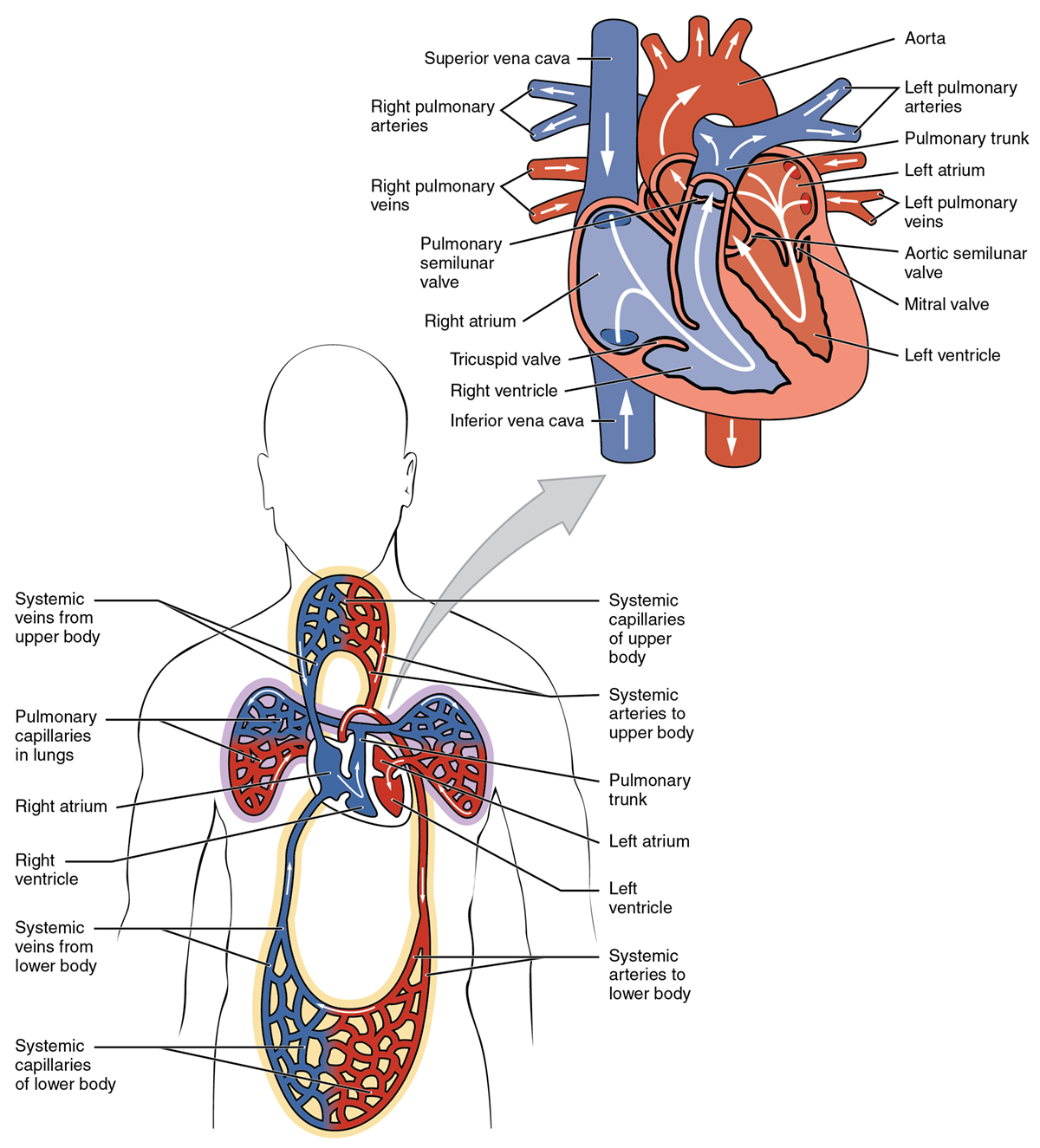
Circulatory system
Circulatory system, also called cardiovascular system, includes the heart, blood vessels and blood. The heart is the major organ of the circulatory system, which is essential for survival. It is a muscle comprised of four chambers: two upper chambers called atria and two lower chambers called ventricles. The chambers are divided by the heart valves. The main role of the heart is to pump fresh oxygenated blood rich in nutrients to the different parts of the body and also to pump deoxygenated blood to the lungs.
The blood vessels (arteries, veins and capillaries) make up an enormous network all through the body. The major artery in the body is aorta and it branches into arteries, which further branch into arterioles. They branch into capillaries, capillaries into venules and eventually, the venules form veins. Blood is a fluid made of red and white blood cells, platelets and plasma, which is made up of water, salts, proteins, hormones, digested food and waste products.
Functions of circulatory system
One of the roles of cardiovascular system is the transportations of gases. This system removes carbon dioxide and provides oxygen to the body cells and tissues. Veins carry deoxygenated blood from the cells to the heart, which is then carried from the heart through the pulmonary arteries to the lungs. In the lungs, oxygen replaces carbon dioxide. Afterward, the fresh oxygenated blood travels through the pulmonary veins to the heart, where it is distributed throughout the body.
Another role of the circulatory system is the transportation of nutrients and digested foods through the blood channels throughout the body. The nutrients enter the bloodstream through the intestinal wall, and after that, they travel to the liver. A part of these nutrients is stored in the liver, while the other part of the nutrients is distributed through the blood to every part of the body.
Furthermore, the circulatory system has the function to transport hormones, distribute heat and maintain pH of the blood. Cardiovascular system also assists the immune system since it contains the white blood cells, which are responsible for fighting against the foreign bodies that enter the body as well as for destroying them.
When the body detects any foreign body, the white blood cells start to produce antibodies that eliminate the foreign bodies, such as viruses, bacteria and other pathogens. When an injury happens, the platelets in the blood are responsible for the blood clotting in order to prevent excessive loss of blood.


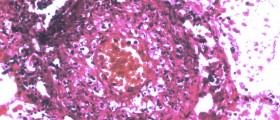





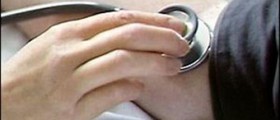

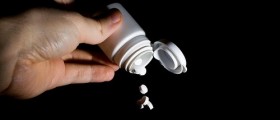


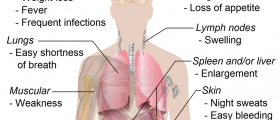



Your thoughts on this
Loading...